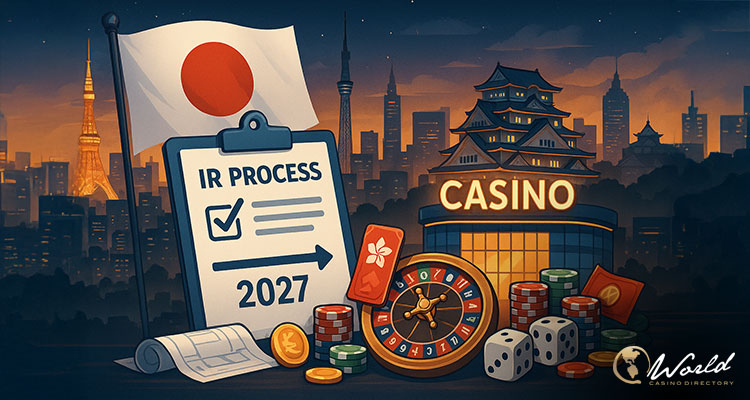Japan’s government is preparing to revive the bidding process for integrated resorts (IRs) that include casinos, aiming to greenlight up to two new developments by the end of 2027. This move comes as the country continues to position itself as a potential major player in the global casino industry, despite initial delays and regulatory hurdles.
According to a report by local media outlet Hokkaido Shimbun, cited by GGRAsia, a new round of IR license applications is expected to begin in 2026, with the application submission phase set to start that December. Ahead of this, prospective host regions will be required to draw up comprehensive “IR District Development Plans,” a key component under Japan’s casino legislation.
As part of the preparations, the Japanese government plans to solicit public feedback on a cabinet order defining the new IR application window. This public comment period will begin in August 2025 and continue through the end of the year, following the upcoming House of Councillors election in July.
Renewed Interest from Hokkaido and Tokyo as Bidding Reopens
So far, only one IR project—MGM Osaka—has received approval under Japan’s strict casino development framework. The Osaka-based complex, valued at JPY 1.27 trillion (roughly USD 8.9 billion), is currently under construction on Yumeshima Island and is slated to open in 2030. The initiative is led by MGM Resorts International and Japan’s Orix Corp.
With two more licenses potentially on offer, both Hokkaido and Tokyo have reportedly expressed renewed interest in participating in the next round. While Hokkaido withdrew from the original bidding phase in 2019, local enthusiasm appears to be rekindled. Tokyo, though previously noncommittal, has conducted feasibility studies and is now among those considered likely to submit a proposal, though official confirmations are still pending.
According to GGRAsia, a preliminary government survey indicated that “several prefectures, including Hokkaido … are ‘interested’” in joining the process.
Investor Sentiment Hinges on Osaka’s Performance
Experts and investors alike are closely watching the progress of MGM Osaka, as its success is seen as a bellwether for future developments. Steve Gallaway, managing partner at Global Market Advisors, stated that if the Osaka IR delivers on expectations, “there will be a push for additional development.”
MGM’s Osaka resort is designed to be a sprawling, city-within-a-city complex. It will feature three hotels with 2,500 rooms, extensive meeting and convention facilities, retail outlets, restaurants, and a theater with a capacity of 3,000. While the casino component will occupy just 3% of the total area, it will still host a vast gaming floor with 6,400 slot machines and 470 table games.
Speaking at G2E Asia in Macau, Ed Bowers, MGM’s President of Global Development, described the project as a major economic driver: “It’s expected to generate approximately three-quarters of a billion US dollars for Japan’s national government,” and around $1.1 billion in annual economic contributions to Osaka through taxes and entry fees.
Wynn Resorts Weighs Return Amid Legal Concerns
Meanwhile, U.S. casino giant Wynn Resorts is re-evaluating its stance on Japan’s IR market. After abandoning its Yokohama plans in 2020 due to Japan’s rigid legal and ownership structures, the company is once again exploring the possibility of participating in the upcoming bidding phase.
During a recent earnings call, Wynn CEO Craig Billings remarked, “Would we look at a fresh IR bidding process in Japan? Of course, but the setup has to be right for us.” He emphasized that any renewed participation hinges on improved legal and regulatory conditions.
Despite past frustrations, Wynn appears open to entering the Japanese market again, provided the legal framework offers greater clarity and ownership flexibility. Billings also named Thailand as another market of interest but noted that its current casino legislation may also pose challenges.
A Second Chance for Japan’s Casino Ambitions
After awarding just one of three available IR licenses in 2023, Japan’s Casino Regulatory Commission now seems intent on accelerating the nation’s slow-moving casino ambitions. With a new leadership lineup, including chairman Takafumi Sato and several high-profile appointees, regulatory momentum appears to be building.
Whether other global operators will follow MGM’s lead depends largely on how Japan addresses concerns about transparency, investor returns, and ownership rights. But with Tokyo potentially in the mix and the success of MGM Osaka looming large, Japan’s IR sector could finally begin realizing the promise envisioned when casino legalization passed in 2018.


